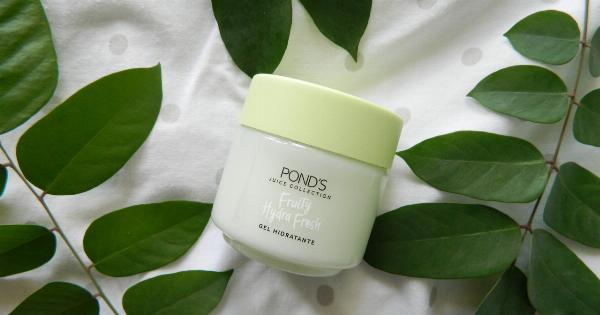Acne is a common skin condition that affects millions of people worldwide. It can be frustrating and embarrassing, leading many to search for effective solutions to clear up their skin.
Luckily, there are numerous products and treatments available, but one that stands out is the anti-acne face mask. If you’re struggling with acne-prone skin and looking for a solution, this is a must-try product.
What Causes Acne?
Before diving into the benefits of an anti-acne face mask, it’s important to understand what causes acne in the first place. Acne is primarily caused by excess oil production, clogged pores, bacteria, and inflammation.
Hormonal changes, stress, diet, and certain medications can also contribute to the development of acne.
What is an Anti-Acne Face Mask?
An anti-acne face mask is a specially formulated product designed to target and treat acne-prone skin. These masks often contain ingredients that help control oil production, unclog pores, reduce inflammation, and kill bacteria.
Regular use of an anti-acne face mask can help prevent breakouts, minimize existing acne, and improve overall skin health.
The Benefits of Using an Anti-Acne Face Mask
1. Deep Cleansing: One of the key benefits of using an anti-acne face mask is its ability to deeply cleanse the skin. These masks typically contain ingredients such as clay or charcoal, which have powerful absorption properties.
They can draw out impurities, excess oil, and toxins from the skin, leaving it clean and refreshed.
2. Unclogging Pores: Clogged pores are one of the main causes of acne. An anti-acne face mask helps to remove dirt, debris, and dead skin cells that can clog pores.
By keeping the pores clear, these masks prevent the formation of blackheads and whiteheads, reducing the likelihood of breakouts.
3. Oil Control: Excess oil production can contribute to the development of acne. Many anti-acne face masks contain ingredients like salicylic acid or tea tree oil, which help regulate sebum production.
By controlling oil, these masks can minimize shine, prevent clogged pores, and reduce the risk of acne flare-ups.
4. Reducing Inflammation: Acne is often accompanied by redness, swelling, and inflammation. Anti-acne face masks often incorporate soothing ingredients like aloe vera or chamomile, which help calm and reduce inflammation.
By addressing the underlying inflammation, these masks help clear up existing acne and prevent new breakouts.
5. Killing Bacteria: Bacteria play a significant role in the development of acne. Some anti-acne face masks contain antibacterial ingredients like benzoyl peroxide or tea tree oil, which help kill acne-causing bacteria.
By eliminating these bacteria, the masks can reduce the severity and frequency of breakouts.
How to Choose the Right Anti-Acne Face Mask
With a wide range of anti-acne face masks available in the market, it’s essential to choose one that suits your skin type and addresses your specific concerns. Consider the following factors when selecting an anti-acne face mask:.
1. Skin Type: Different face masks are formulated for different skin types. Whether you have oily, dry, or combination skin, choose a mask that caters to your specific needs.
2. Ingredients: Look for acne-fighting ingredients such as salicylic acid, benzoyl peroxide, sulfur, or tea tree oil. These ingredients are known for their effectiveness in treating acne and preventing future breakouts.
3. Sensitivity: If you have sensitive skin, opt for a gentle anti-acne face mask that is free from harsh chemicals or fragrances. Choosing a hypoallergenic option reduces the risk of irritation and inflammation.
4. Additional Benefits: Some anti-acne face masks offer additional benefits like hydration, brightening, or exfoliation. Consider whether you prefer a multi-tasking mask to address multiple skin concerns.
Tips for Using an Anti-Acne Face Mask
For optimal results, follow these tips when using an anti-acne face mask:.
1. Cleanse Before Applying: Start with a clean face. Wash your face with a gentle cleanser to remove any dirt, oil, or makeup residues before applying the mask.
2. Patch Test: If you’re trying a new face mask, it’s always a good idea to perform a patch test. Apply a small amount of the mask to a discreet area of your skin and wait for 24 hours.
If you don’t experience any adverse reactions, the mask should be safe to use on your face.
3. Apply Evenly: Use clean fingers, a brush, or a spatula to apply the mask evenly to your face. Avoid the delicate eye and lip areas. Ensure complete coverage without applying a thick layer that may take longer to dry.
4. Follow Instructions: Each anti-acne face mask will have specific instructions regarding application time and removal. Always read and follow the instructions provided with the product for best results.
5. Moisturize Afterward: After removing the face mask, gently pat your skin dry and follow up with a moisturizer suitable for acne-prone skin. This will help hydrate your skin and maintain its balance.
Conclusion
An anti-acne face mask can be a game-changer for those struggling with acne-prone skin. By deep cleansing, unclogging pores, controlling oil, reducing inflammation, and killing bacteria, these masks offer multiple benefits in the fight against acne.
Remember to choose a mask that suits your skin type, perform patch tests, and follow the recommended usage guidelines for the best results. Incorporate an anti-acne face mask into your skincare routine, and watch your acne diminish as your skin becomes clearer and healthier.



























